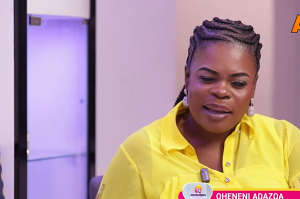Dr Kwadwo Afari-Gyan, Chairman of the Electoral Commission (EC) on Thursday cautioned politicians and political analysts, who are calling for the suspension of the creation of new constituencies and districts to be mindful of the ramifications of their requests.
He said the theory for redistribution of the existing 200 constituencies instead of creating new ones would mean that the Upper East Region would lose two seats from its current 12 to 10.
Upper West would also lose one from its current eight to seven, Central Region would lose one, from 17 to 16, Volta would lose two seats from 19 to 17 and Eastern would also lose four seats from 26 to 22.
Dr Afari-Gyan, who was speaking to the Ghana News Agency after participating in a roundtable discussion on: "Towards Elections 2004: The Creation of New District Assemblies," urged politicians and political analysts to be circumspect in their contributions.
The proposal submitted by the EC is based on weights of land size and population.
Based on this formula the Western Region would gain an additional seat from the current 19 to 20 seats, Greater Accra would gain six more from 22 to 28 and the Ashanti Region would gain three more seats from 33 to 36.
The Brong Ahafo and Northern Regions would retain their current numbers of 21 and 23 seats, respectively.
Mr Kwadwo Baah-Wiredu, Minister of Local Government and Rural Development, said the demarcation of local government boundaries was a politically sensitive assignment, which ought to be handled with care and circumspection.
He said: "It has the potential of evoking political tension and ethnic emotions and entails huge capital outlay which demand resources to ensure that the new district has the capacity to perform its functions."
Mr Baah-Wiredu said out of over 72 requests for new districts, the Ministry after evaluating petitions had forwarded 20 to the EC for further analysis.
The regional distribution are; Upper West, Upper East, Western, Eastern and Volta would have two new districts, Greater Accra, Northern and Central one each, Ashanti three and Brong Ahafo five.
It is estimated to cost 10 billion cedis to provide physical infrastructure and other facilities such as office and residential accommodations, equipment and logistics, vehicles and personnel.
The Minister noted that concerns of stakeholders, political analysts and politicians had been considered and would ensure that the number of new districts created were within manageable limits.
Mr Baah-Wiredu lauded the creation of the 45 new districts in 1988, which he said impacted positively on governance and brought government closer to the people while new district capitals, which were sometime ago villages expanded and increased in volume and range of services offered there.
He said it also ensured even and balanced development of the country as well as helping to ease pressure on the major settlements in the provision of service to the population and helped in dividing complex and heterogeneous districts into relatively homogenous and cohesive districts.
In a welcoming address, Professor Emmanuel Gyimah-Boadi, Executive Director of Ghana Center for Democratic Development (CDD Ghana), said the discussion, was the last of a series of programmes lined up by the Center to support the effort of EC and other governance agencies to prepare for credible elections in 2004.
Prof. Gyimah-Boadi said the Centre considered Elections 2004 as significant as it would be the fourth consecutive elections under the Fourth Republican Constitution and be the first to be conducted under the New Patriotic Party (NPP) government.
This provides a democratic test to the government, the EC, Civil Society Organisations, the Media and other stakeholders to ensure another successful peaceful, transparent acceptable and credible elections.
Mr Ernest Specht, Director Friedrich Nuamann Foundation, sponsors of the forum called for critical assessment of the electoral process to identify challenges and prospects for future elections.
Mr Justice V. C. R. A. C. Crabbe, former Supreme Court Judge and Commissioner, Statute Law Revision, chaired the discussion, which was attended by politicians, Electoral Officials, Media practitioners and other stakeholders in Ghana's electoral process including the donor community.
General News of Thursday, 13 March 2003
Source: gna












